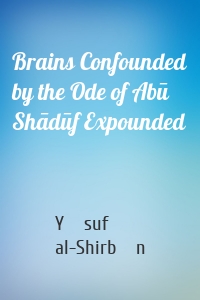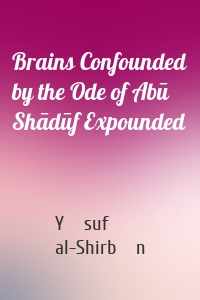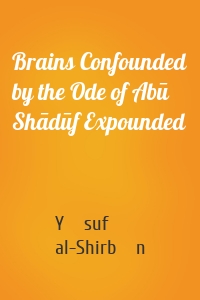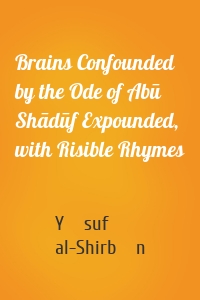Yūsuf al-Shirbīnī
4 кн.
Brains Confounded by the Ode of Abū...
Unique in pre-twentieth-century Arabic literature for taking the countryside as its central theme, Yusuf al-Shirbini’s Brains Confounded combines a mordant satire on seventeenth-century Egyptian rural society with a hilarious parody of the verse-and-commentary genre so beloved by scholars of his day. In Volume One, al-Shirbini describes the three rural “types”—peasant cultivator, village man-of-religion and rural dervish—offering numerous anecdotes testifying to the ignorance, dirtiness,...
| Автор | Yūsuf al-Shirbīnī |
Brains Confounded by the Ode of Abū...
Unique in pre-twentieth-century Arabic literature for taking the countryside as its central theme, Yusuf al-Shirbini’s Brains Confounded combines a mordant satire on seventeenth-century Egyptian rural society with a hilarious parody of the verse-and-commentary genre so beloved by scholars of his day. In Volume One, al-Shirbini describes the three rural “types”—peasant cultivator, village man-of-religion and rural dervish—offering numerous anecdotes testifying to the ignorance, dirtiness,...
| Автор | Yūsuf al-Shirbīnī |
Brains Confounded by the Ode of Abū...
Unique in pre-twentieth-century Arabic literature for taking the countryside as its central theme, Yusuf al-Shirbini’s Brains Confounded combines a mordant satire on seventeenth-century Egyptian rural society with a hilarious parody of the verse-and-commentary genre so beloved by scholars of his day. In Volume One, al-Shirbini describes the three rural “types”—peasant cultivator, village man-of-religion and rural dervish—offering numerous anecdotes testifying to the ignorance, dirtiness,...
| Автор | Yūsuf al-Shirbīnī |
Brains Confounded by the Ode of Abū...
Witty, bawdy, and vicious, Yusuf al-Shirbini’s Brains Confounded pits the “coarse” rural masses against the “refined” urban population. In Volume One, al-Shirbini describes the three rural “types”—peasant cultivator, village man-of-religion, and rural dervish—offering anecdotes testifying to the ignorance, dirtiness, and criminality of each. In Volume Two, he presents a hilarious parody of the verse-and-commentary genre so beloved by scholars of his day, with a 47-line poem supposedly written...
| Автор | Yūsuf al-Shirbīnī |





